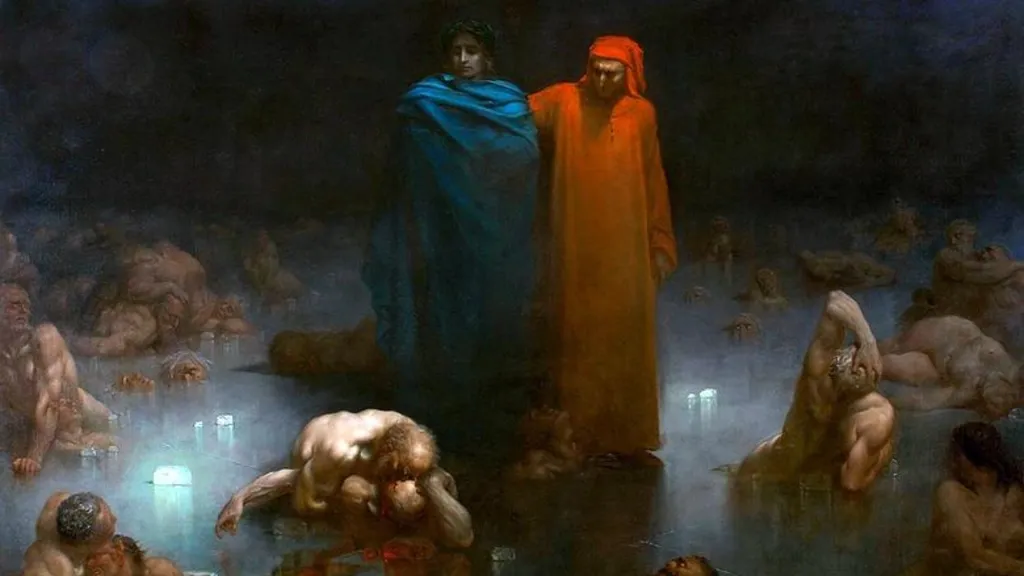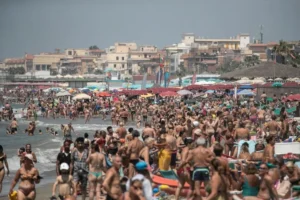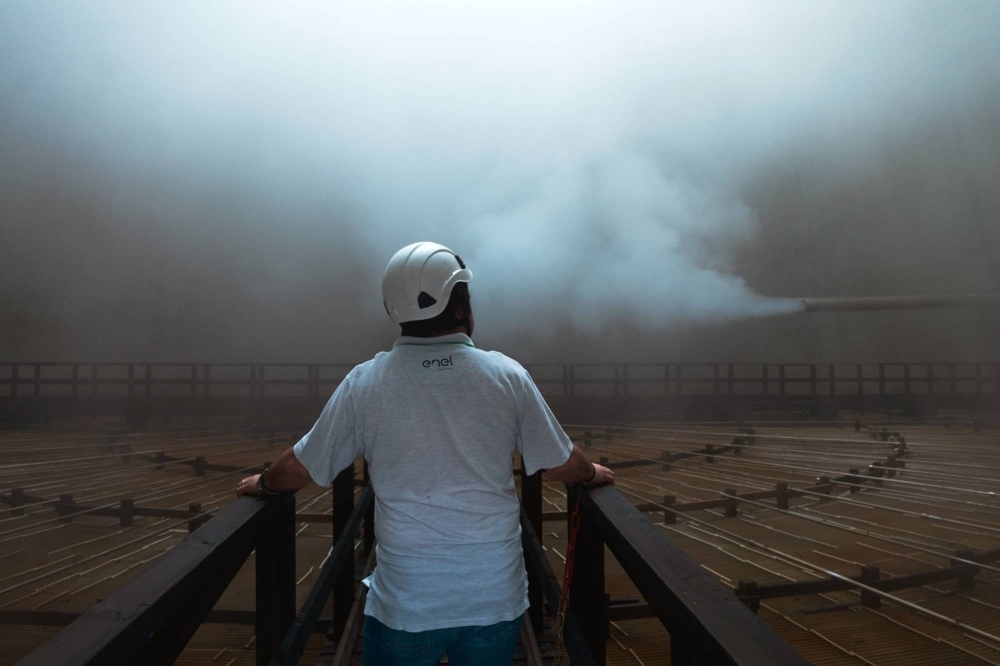“The real-life individuals Dante encounters in heaven and hell betray his political viewpoints. He opposed the aspirations of Pope Boniface VIII and longed for the Church to focus on the afterlife rather than earthly riches. Politically, he was nostalgic for the heyday of the Roman Republic, when leaders were loyal not to themselves but to the Republic.” — Tim Brinkhof, “Dante’s Divine Comedy isn’t only about religion. It’s a political statement.”, Big Think, July 4, 2023
2023 Soundtrack for 1911 Helios Films Adaptation of the Divine Comedy

“Un progetto, che sarà pubblicato in tre dvd nel 2023, a metà tra letteratura, cinema e musica: una composizione per banda musicale mai incisa e le immagini ritrovate circa vent’anni fa di una trilogia di film muti sulla Divina Commedia del 1911.” — “Castelli Romani, il viaggio di Dante per musica e immagini con la banda musicale di Albano”, La Repubblica, March 25, 2023
It has been announced that, in 2023, a unique soundtrack by Albano’s band will be released, accompanying a new version of the Helios-Psiche 1911 film adaptation of the full Divina Commedia (not to be confused with the more famous 1911 Inferno by Milano Films).
Deadly heatwave named after Dante’s Inferno claims first victim as locals wilt in 45C
“A deadly heatwave named after Dante’s Inferno has claimed its first victim with temperatures soaring closer to an uncomfortable 45C.
The brutal heatwave has caused chaos across Europe and a 44-year-old has since died due to the horror heats which are spreading across the Mediterranean.
[…]
The man died in hospital hours after collapsing, with life-threatening heats now warned of as Brits flock to the Mediterranean to lap up the sun, although the brutal Cerberus weather could prove dangerous.
Cerberus, named after the creature which guards the gates of the underworld in Dante’s first third of The Divine Comedy, is also the name of a sweltering heat weather system in the Sahara.” —Ewan Gleadow, “Deadly heatwave named after Dante’s Inferno claims first victim as locals wilt in 45C,” Daily Star, July 12, 2023 (retrieved November 10, 2023)
Chuck Tingle, Camp Damascus (2023)
“On the 14th of September, 1321, Dante Alighieri died in exile. He was called a lot of things —poet, artist, philosopher —but at the time his most prominent label was heretic. He was such a threat to the church that, eight years after his burial, Cardinal Bertrand du Pouget demanded the man’s bones be dug up and burned at the stake.
Ask any historian how he died and they’ll answer malaria, but his story is written by the victors, and arsenic poisoning wasn’t quite as easy to spot in the fourteenth century.
I’ve never read Dante’s Inferno, which is strictly banned in the Darling household, but after spending the last two weeks researching all things hellish with Saul, I know the poem pretty well.
In this early epic poem, the bottom layer of hell is described as freezing cold, an icy lake where Satan dwells.
This characterization didn’t stick around, and look where it got Dante.” —Chuck Tingle, Camp Damascus (July 18, 2023)
To read more or to purchase the book, visit Macmillan Publishers.
Contributed by Zoe D’Alessandro, Florida State University ’21
Dante’s Inferno may have the answer for Europe’s energy bind
“The steam and geysers rising from the valleys of Tuscany inspired Dante Alighieri’s vision of hell in The Divine Comedy. Centuries later, they’re providing Italy with an inexhaustible supply of renewable energy.
“Larderello is home to the world’s oldest geothermal power site, where Enel Green Power turns heat released by the Earth’s core into electricity. The facility started powering light bulbs in 1904, and now the whole site generates more than 5% of the nation’s clean power production.” —Petra Sorge and Alberto Brambilla, “Dante’s Inferno May Have the Answer for Europe’s Energy Bind,” The Japan Times (August 28, 2023)




